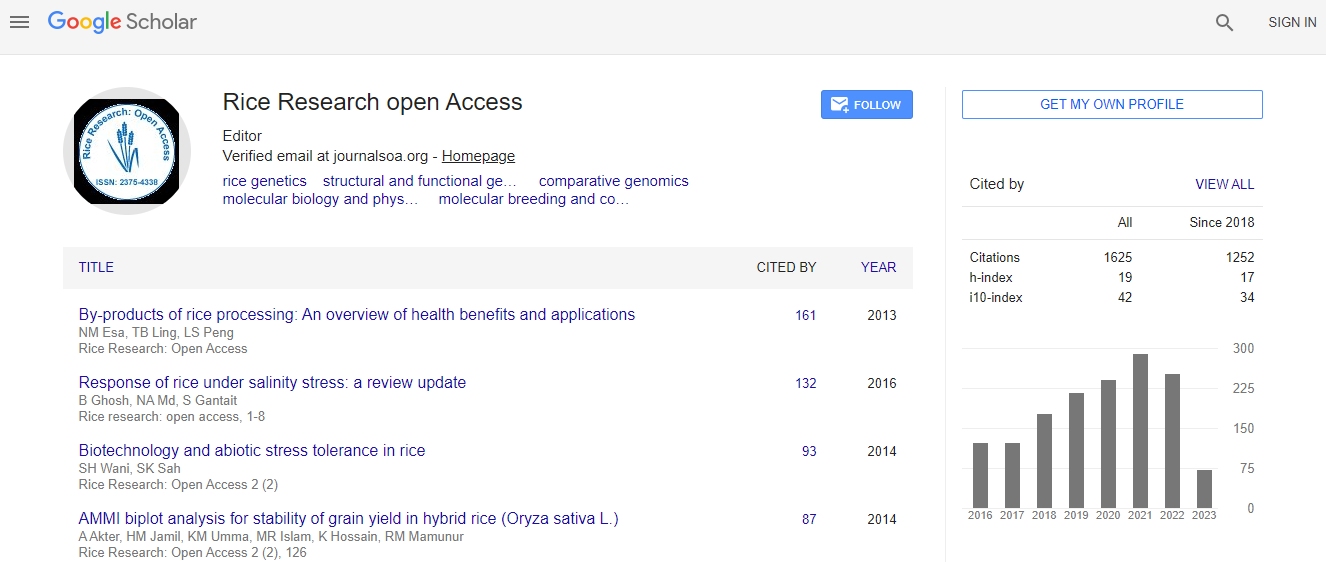Commentary
Strategies for Boosting Rice Yield in the Face of Climate Change in India
| Bhagirath Singh Chauhan1* and Gulshan Mahajan2 | ||
| 1Weed Scientist, International Rice Research Institute, Philippines | ||
| 2Rice Agronomist, Punjab Agricultural University, India | ||
| Corresponding Author : | Bhagirath Singh Chauhan Weed Scientist International Rice Research Institute Philippines E-mail: b.chauhan@irri.org |
|
| Received June 13, 2013; Accepted August 17, 2013; Published August 19, 2013 | ||
| Citation: Chauhan BS, Mahajan G (2013) Strategies for Boosting Rice Yield in the Face of Climate Change in India. J Rice Res 1:105. doi: 10.4172/jrr.1000105 | ||
| Copyright: © 2013 Chauhan BS, et al. This is an open-access article distributed under the terms of the Creative Commons Attribution License, which permits unrestricted use, distribution, and reproduction in any medium, provided the original author and source are credited. | ||
Related article at Pubmed Pubmed  Scholar Google Scholar Google |
||
Abstract
Rice (Oryza sativa L.) is an important staple crop in Asia, including India. During the era of the Green Revolution, the rate of growth in rice production was higher than the population growth and thus production was in the surplus. But now, with climate change, production and productivity gains of rice are a question mark. Rice contributes to global climate change through the emission of greenhouse gases, such as methane and nitrous oxide, which are responsible for global warming, and, in turn, suffers the consequences of climate change. To cope with the anticipated impact of this change, mitigation and adaptation strategies need to be evaluated. Mitigation of the causal factors and adaptation of the crop to changing climate are two broad strategies to restrain and cope with the changing climate; mitigation strategies aim at reducing the emission of greenhouse gases into the atmosphere, whereas the adaptation strategies aims at enabling the plant to perform optimally under adverse climatic conditions through cultural and genetic approaches.

 Spanish
Spanish  Chinese
Chinese  Russian
Russian  German
German  French
French  Japanese
Japanese  Portuguese
Portuguese  Hindi
Hindi 
